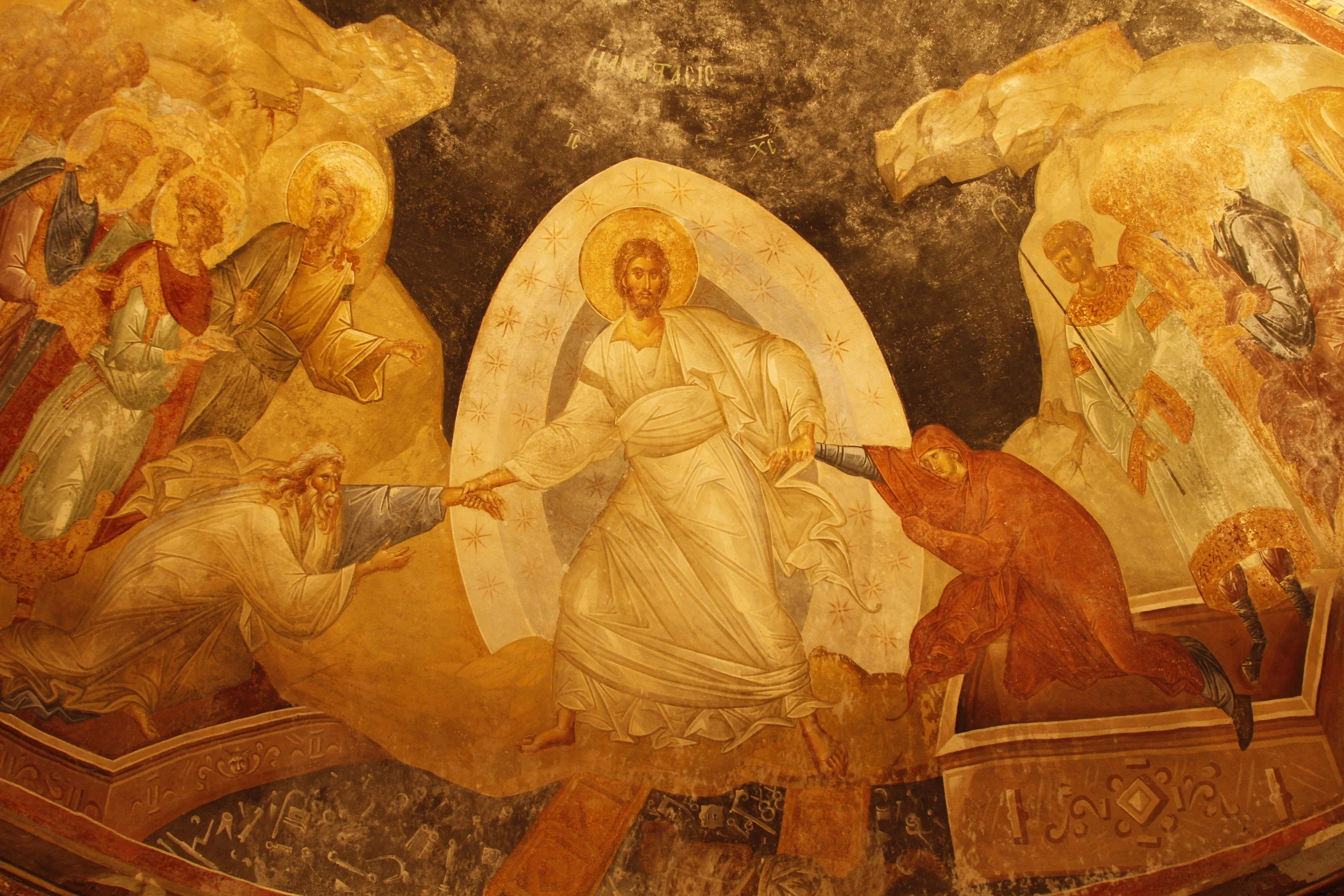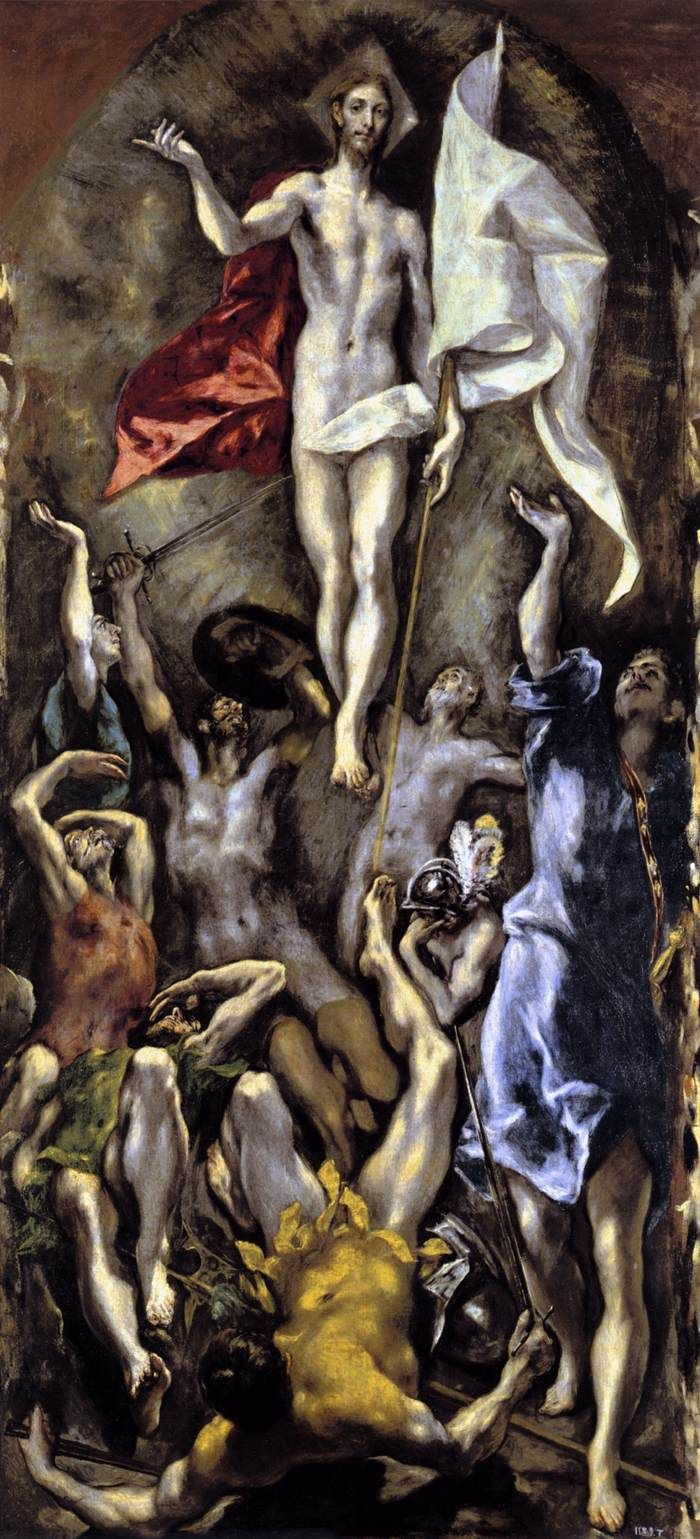THE TRANSLATION PRESENTED BELOW comes from of a forthcoming release by Rubedo Press featuring the celebrated Bohemian-Austrian poet, Rainer Maria Rilke (1875–1926). It is cited alongside other poems by Rilke as part of a detailed monograph by the German cultural philosopher, Jean Gebser (1905–1973), entitled Rilke and Spain. The focus of Gebser’s study is the profound influence of Spain on Rilke’s work, including, among other things, the decisive influence of El Greco (1541–1614), a post-Byzantine artist of Greek origin who formed part of the Spanish Renaissance. Comments Gebser:
Beyond all others there is one poem that stands out without reservation: ‘Christ’s Descent into Hell’ [Christi Höllenfahrt]. Its whole contexture is entirely that of a Greco. Indeed, it almost appears to be the reflection of one of his pictures: the same passion, the same force and intensity of colour, the same shadows and transitions; succinctly stated, Greco’s rhythm dominates this poem, that of the passionate invocation with its swelling lines and colours, which tear upward and downward, that rhythm, whose intensity at times threatens to burst the very frame of the picture.
The theme of this poem is the Descensus Christi ad Inferos (Descent of Christ into Hell), also known as the Harrowing of Hell, which took place between the crucifixion and the resurrection. It is technically a descent into the realm of the dead, rather than the damned, where Christ redeems the righteous—including the primordial humans, Adam and Eve—from the bonds of death, and thus rises triumphant. In addition to providing a taste of the forthcoming study of Rilke, the translation here is offered in the spirit of deepening our awareness of the frequently-overlooked chthonic dimension of Easter.
Christ's Descent into Hell
RAINER MARIA RILKE
El Greco, The Resurrection, c. 1600.
Finally broken, his being fled the terrible
body of suffering. Left it above.
And darkness itself trembled
and unleashed upon the pallid corpse
black hordes—as nightfall rippled
shimmering in fear before its clash
with cold agony. The dark and restless winds
lost heart upon the remains; and the wakeful throng,
the creatures of the night, lost their vigour and fell numb.
His liberated spirit thought it might rest
languid in the landscape. For the feat of his suffering
was more than enough. And although they seemed
gentle and moderate, these things of nocturnal origin
spread like an atmosphere of sorrow.
And the earth, parched from the thirst of its wounds,
the earth ripped open
and roared into the abyss.
He, connoisseur of torments, heard Hell
howling, clamouring for consciousness
of his own consummate misery: that by the end, frightened,
she (Hell) anticipated his own (unending), and her perpetual, anguish.
And his spirit plunged with the immense gravity of his exhaustion: shot like haste personified
through the alienating scrutiny of the shadows,
raised an urgent glance to Adam,
hurried, disappeared, reappeared, and fell into the fierce rush
of the depths. Suddenly—rising higher and higher—he surfaced
upon the seething ferment of screams, emerging
from the foreboding edifice of his endurance: without breath,
without banister, in full mastery of pain—and stood silent.
From Rilke and Spain, by Jean Gebser
Translated by Aaron Cheak, PhD
Forthcoming, Rubedo Press, 2017

